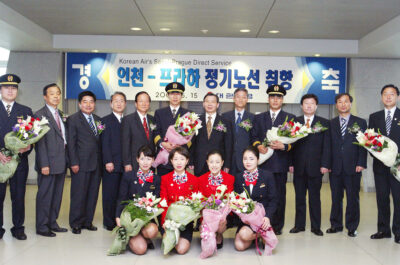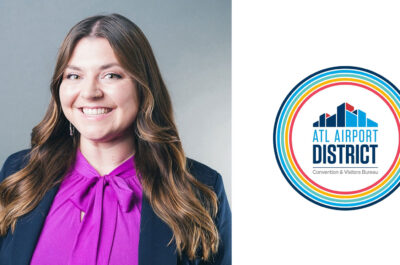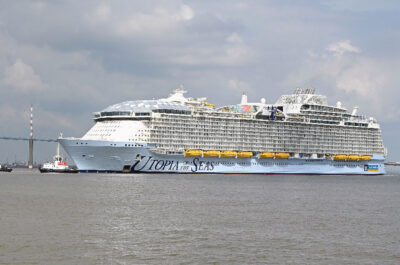With the Third railway package presented yesterday, the Commission is proposing to continue the reform of…
With the Third railway package presented yesterday, the Commission is proposing to continue the reform of the railway sector by opening up international passenger services to competition within the European Union. It thus seeks to complete the integration of the European railway area and stimulate a mode of transport which is needed more than ever. The Commission is also proposing to improve the rights of passengers using international services, establish a certification system for locomotive drivers and step up the quality of freight services. In 2010, the high-speed trans-European network will be connected and new services will be able to develop on the basis of competition. Pressure from low-cost airlines is already a reality for international rail passenger services: they will have to evolve into new models and this is without any doubt the right time to free up initiatives stated Loyola de Palacio, Vice-President of the European Commission responsible for transport and energy. This proposal is both ambitious and realistic: with the 2010 deadline, we are establishing a clear timeframe for all operators so that they can prepare
The Commission has presented a further series of measures to revitalise the railways in accordance with the guidelines set out in the White Paper European transport policy for 2010: Time to decide(1).
Opening up of the market
It is proposed that as from 1 January 2010, railway undertakings which have a licence and the required safety certificates should be able to operate international services in the Community. For example, existing services such as Thalys and Eurostar could see the arrival of competitors. This additional phase in the setting up of an internal market for rail services comes at a time when traditional international rail services are facing increasing pressure from low-cost airlines. Allowing new commercial ventures ought to give a new lease of life to the sector. In order to create realistic economic conditions to develop the services, it is proposed that operators be permitted to pick up and set down passengers at any station on an international route, including stations located in the same Member State. This has been organised in such a way as to safeguard the economic equilibrium of public service contracts which could be affected by this, while at the same time not placing exaggerated constraints on the operating conditions of new international operators.
A survey carried out in 2003(2) in the fifteen Member States shows that 70% of people interviewed agree with the statement: If safety standards are observed, competition is the best way of improving the efficiency of rail transport. This approach has been endorsed repeatedly by the European Parliament, including when it voted in 1999 on the first railway package and in 2003 on the second. In October 2003, the European Parliament passed an amendment calling for the opening up to competition of all rail passenger services, whether national or international, as of 1 January 2008(3). In its opinion on these amendments, (4) the Commission stated that this matter had to be dealt with in a specific proposal, making it possible to take account of existing legislation on public service contracts in order to avoid any inconsistency. The Commission is therefore presenting today a specific proposal on the opening up of the market for passenger services, accompanied by measures concerning protection of passenger rights.
More rights for passengers
As has already been introduced in the aviation sector, with the protection of passengers rights in the event of denied boarding and delays, the Commission is proposing to establish a framework to protect the rights of passengers using international rail services. It consists of a proposal for a regulation establishing minimum standards for information for passengers before and during their journey, the rules to be followed in the case of delays, treatment of complaints and assistance for individuals with reduced mobility. This regulation constitutes the basis for the introduction of more favourable measures which will be encouraged through voluntary agreements between the industry and passenger organisations.
Certification of locomotive drivers
The measures presented today also include a draft directive on the certification of locomotive drivers. Drawn up in close consultation with all sides in the railway industry, this text establishes a mechanism allowing a more precise definition of the skills and responsibilities in terms of training, assessment and recognition of qualifications of locomotive drivers and train crew responsible for safety aspects. A driver will have to possess personal certificates attesting to his general qualifications and valid throughout the Community. To this must be added a certificate issued by the railway undertaking recognising specific training relating to the route operated, the equipment used and the operational and safety procedures specific to that undertaking.
Quality rail freight services
As regards the transport of goods, the Commission has presented a draft regulation aiming to introduce minimum quality clauses in contracts between railway undertakings and their customers, which is already considered a good practice within the industry. The precise content of the quality commitments is left to the discretion of the contracting parties, but the proposed text aims to guarantee that quality factors are systematically discussed and taken into account in contracts. The lack of quality assurance for freight services, particularly for international services involving several railway undertakings on the same route, has a negative impact on the attractiveness of rail transport and is still one of the major reasons why its market share is steadily declining. It is now below 8% (compared with 40% in the US).
In the long term, competition will force an improvement in quality, but the actual process of opening up the European rail freight market is too slow. New entrants represent only 3 to 4% of the market and in some Member States there are none as yet. In 2003, compared with 2002, the volume of goods transported by rail(5) fell in half the Member States and by 1% in the European Union as a whole. Over the last ten years, the volume of goods transported increased by 30% (38% for road) while rail transport stagnated (3%). This aversion to rail transport is due above all to reliability and quality problems.
Background
These measures add to the framework in place since the directives of the first railway package of 2001 and the measures of the second railway package undergoing final adoption (Directive on railway safety, rail agency, opening up of the freight market). The first package allowed the regulated opening up of international goods transport. It has applied since 15 March 2003. The second package aims to speed up this process and extend it to national goods transport operations (cabotage). In addition it improves safety and allows greater interoperability, as a result of a number of specific directives and the setting up of the European Agency for Rail Safety and Interoperability which will be based in Valenciennes (France). It is currently the subject of conciliation by the Council and the European Parliament.
(1) COM(2001)370 of 12.09.2001.
(2) Eurobarometre 59.2 carried out in the spring of 2003.
(3) Legislative resolution of the European Parliament on the Councils common position with a view to the adoption of the Directive of the European Parliament and of the Council amendng Council Directive 91/440/EC on the development of the Communitys railways, adopted on 23 October 2003 ((8011/3/2003 – C5-0295/2003 – 2002/0025(COD)).
(4) COM(2003)719 of 26.11.2003.
(5) In tonne-km.
Theodore is the Co-Founder and Managing Editor of TravelDailyNews Media Network; his responsibilities include business development and planning for TravelDailyNews long-term opportunities.
























































































































































































































